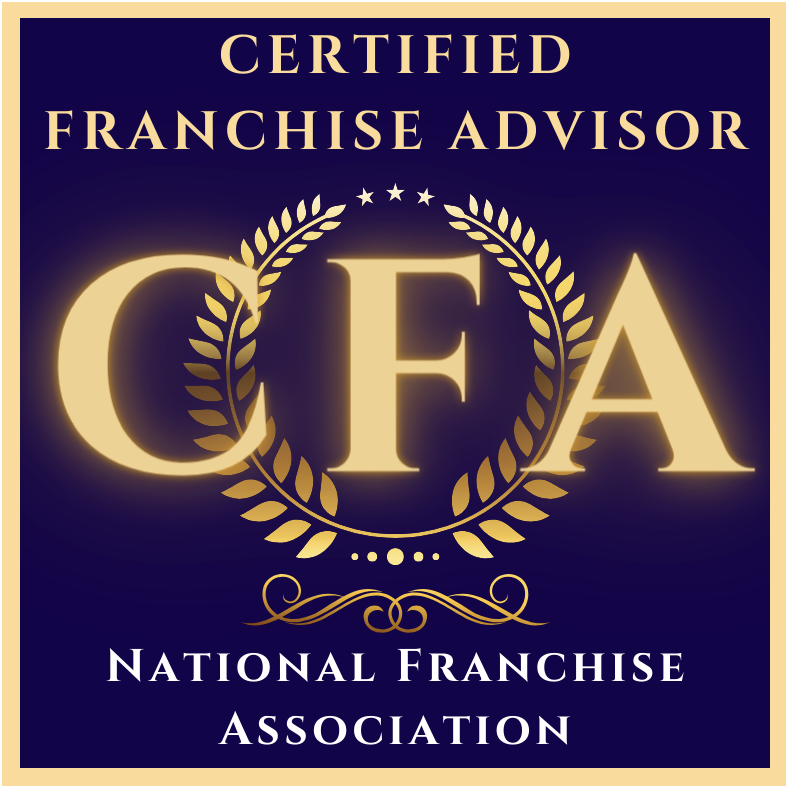How to Franchise a Business? 9 Steps to Know
Be your own boss and propel your business like a pro!
Turn your passion for business into a thriving career: Become a Franchise Consultant and shape the future of entrepreneurship!
If you aspire to run a prosperous company, then buying a franchise is among the best ways to get started if that’s the case. Purchasing a franchise offers entrepreneurs the opportunity to profit from an established company model and brand image, as opposed to establishing a fresh venture. This offers new business owners a good chance of success while saving you the time and risk of starting from scratch.
That being said, there are a lot of things to think about before committing to this business strategy, as franchises aren’t infallible enterprises. This post will walk readers through the process of how to franchise a business? and offer suggestions for useful resources for franchise owners.
Continue reading to start the process of how to franchise a business?
The number of franchise locations in the US is close to 800,000.
What Does Franchise Mean in Business?

A franchise is a business in which the owner or parent firm (referred to as the “franchisor”) authorizes a person (referred to as the “franchisee”) to operate the enterprise at a predetermined satellite location.
Let us examine McDonald’s in order to gain a better understanding of the concept.
The majority of McDonald’s restaurants are operated by franchisees. A license to run a McDonald’s site has been granted to the franchisee, who also benefits from corporate marketing, an established brand image, and the annual sales that the location brings in.
The franchisee has agreed to run the location in accordance with McDonalds’ standards and rules in exchange for paying McDonald’s an initial franchise fee and a predetermined percentage of the business’s annual income.
Franchising vs. licensing: What's the difference?
There are two distinct methods to share brand knowledge for a fee: franchising and licensing. Control and operation are the key areas where franchising and licensing differ from one another:
1. A franchise agreement provides the franchisee with access to all the detailed information required to establish a new location within an established and profitable business model.
Ideal for: companies that provide services
For instance of this would be a McDonald’s that the company has a franchise agreement with a local business owner.
2. A license agreement grants access to a licensee exclusively to a single type of intellectual property, such as a character or logo.
Ideal for: for firms that focus on their products.
For instance, Disney grants a store a license to use the Mickey Mouse character on a range of sweatshirts.

How Much Does It Cost to Franchise Your Business?
The price to franchise varies according to the industry, where you live, and other factors.
While the overall cost can occasionally be less than $20,000, other franchises charge up to $100,000 or more.
State laws and regulations pertaining to franchise operations are distinct from federal regulations overseen by the Federal Trade Commission (FTC).
It’s advisable to consult with a franchise attorney who can assist you with document preparation in your particular state to make sure you don’t overlook any state-specific regulations.

How Long Does It Take to Franchise Your Business?
Although there are no set times, franchising a firm usually takes 90 to 120 days. New franchisors should anticipate a lot of activity at this time. A multi-step development process with multiple tasks and milestones occurring simultaneously is necessary to successfully franchise.
How to Franchise a Business?
Once you’ve decided to franchise your small business, you’ll need to prepare to train and manage the new independent contractors who will operate each franchise independently.
These are the seven primary stages you’ll need to follow, along with explanations.
- Verify that your company is prepared for franchising.
- Safeguard the intellectual property of your company.
- Create an FDD, or financial disclosure document.
- Create a franchise contract.
- Create an operating guidebook for franchisees.
- Register or file your FDD.
- Create a plan to meet your sales objectives
9 Steps to Franchising a Business

It’s time to proceed with the process of becoming a franchisee after learning how to franchise a business? Here is a quick rundown of the nine steps that follow, along with some questions you should ask yourself.
Make Sure Your Business is Ready to Franchise
Since it’s never a good idea to start a franchise before you’ve established one, you need first to determine whether your current company is genuinely suitable for franchising. Franchises are just successful businesses that have been replicated; fresh or untested company ideas should never be tested on franchises.
First and foremost, there must be a sufficient market for your goods or services and a well-known brand name. The company also needs to comply with legislation and operate in multiple states. The ability of your possible franchisee network to grow to a suitable size is also crucial.
The capacity to repeat and systematize business processes in a way that yields reliable outcomes is most important. In this manner, the client experience is maintained while skill transfer is facilitated. To support your franchise network, you, as the franchisor, must be prepared to make investments in the creation of programs and infrastructure. Maintaining business ties and creating a developing company culture both demands work.
Protect Your Business's Intellectual Property
By securing your intellectual property, you may provide your company a financial edge and assure that you are able to protect your original concepts, and services. Enforcing your ownership rights and registering intellectual property with the government are the greatest ways to protect it.
You can safeguard specific kinds of intellectual property in addition to registering and enforcing them by:
1. Recording what you find
2. Making use of DRM (digital rights management)
3. Selecting robust nondisclosure agreements
4. Setting secure access credentials
Prepare a Franchise Disclosure Document (FDD)
Franchisors are required by the Federal Trade Commission (FTC) Rule to submit an annual Franchise Disclosure Document (FDD) and give it to prospective franchise buyers. Similar to examining a public company’s corporate 10-K filing, FDDs offer insightful information about a franchisor’s offers and the general health of the business. Examining the FDD with professionals in the field, such as franchise attorneys and accountants, is essential.
In order to assure that potential franchise candidates have at least 14 days (depending on the state) to review the FDD before signing a legally binding contract or paying the franchisor or any associated company, franchisors must provide the FDD to them upon request. Franchisors must also update the document every year or whenever there are any significant changes.
Draft a Franchise Agreement
A franchise agreement is a legal contract that outlines the expectations for both you and your franchisee and establishes the guidelines for how the business will run. In order to be in line with the franchise, a franchisee must sign this contract as an independent contractor rather than an employee. It will be included in the FDD you create for every franchisee after it is signed.
Although there isn’t a set format for the franchise agreement, the best ones are detailed and easy to understand. Yours could consist of:
1. Franchise costs (one-time and ongoing)
2. Terms and conditions for the agreement’s renewal Terms and conditions for ending the agreement, together with post-termination provisions.
3. Regulations controlling the franchise’s transfer to a third party
4. Franchise launch schedule
5. Minimum quantities sold
6. Protections for franchise territories
7. Specifications for supplies, equipment, and inventory
8. Noncompeting clauses
9. Techniques for resolving disputes (such as mediation or arbitration)
Not every company plan will meet all of the prerequisites listed above. By preparing a thorough and clear franchise agreement with the assistance of a franchise attorney, you may remove uncertainty from starting a new business.
Compile an Operations Manual for Franchisees
The day-to-day activities of the franchise are fully detailed in an operations manual. The handbook for operations is:
1. Private and only accessible by the franchisee
2. Digital format is preferred, and it will have more content like links and videos.
3. Adaptable, changing as standards and business practices do.
Although it is included in the franchise agreement, this handbook isn’t necessary a signed legal document for the franchisee. As a result, it is the franchisee’s duty to take note of and adhere to all enclosed duties. However, franchisees will not function precisely in your identical manner. Prepare to relinquish some control over the implementation of your business plan, provided that all prerequisites are satisfied.
File or Register Your FDD
Your FDD should be safely preserved after it is finished so you can retrieve it and make updates as needed. Your FDD is a necessary document; however, depending on your state of residence, you may not be compelled to submit it with the government. States that require registration, filing, and non-registration all have different requirements for franchisors. For instance, in non-registration states, your disclosure documentation must include a registered trademark.
You may find out exactly what to do with your FDD by speaking with a specialist, regardless of the state in where you reside.
Set Strategy to Achieve Your Sales Goals
Franchising your company is a fantastic way to spread the word about your winning concept. You should establish reasonable business objectives for your franchise, and in order to achieve them, you’ll need a reasonable plan of action.
Your plan should be specific to your company, your neighborhood, and your expansion objectives. While developing your plan, the following are some excellent concepts to keep in mind:
- Give referral bonuses to those who submit eligible franchisee applications.
- To attract attention, start with a comprehensive marketing plan.
- Recruit salespeople that are knowledgeable with your company and its history.
Pros and Cons of Franchising Your Business
Owning a business is rewarding job, but it also necessitates making difficult choices. Consider the advantages and disadvantages of franchising your company to help you decide if it’s the correct move for you.
Pros:
For a business owner, a franchise is a valuable asset. If you are able to scale your business, this concept can help you as it promotes growth. Among the benefits of franchising are:
Passive income: Your company may be able to generate a consistent flow of revenue without your direct involvement through franchisee fees and other payments.
Scalable business plan: Acquiring a new franchise opens up new markets and the potential to grow your clientele quickly, which may eventually spur demand for further franchisees.
Diverse revenue: Your revenue stream will be diversified by income from royalties, continuing fees, and other sources in addition to the franchise fees you will receive.
The amount of varied passive income you generate ultimately depends on how scalable your franchise is. In any case, franchisees have special chances for expansion.
Cons:
Although running a franchise has many advantages, there are also some disadvantages to this type of business plan. Among the drawbacks of franchising are:
Expense up front: Before a single franchise opens, the entire cost of approval for a franchise operation might cost thousands of dollars.
Potential disputes: Arguments with franchisees may arise from problems with operations and may need to be resolved through arbitration.
Slow profit timeline: It costs money to open a franchise, and it takes time for the business to turn a profit.
The long-term strategy of franchising may be challenging to maintain if finances are low. Enough financial planning is necessary because to its high upfront expenditures and potential for legal challenges.
FAQ's
Is it worth it to franchise my business?
For people who are new to business ownership, franchising can be a lucrative endeavor. It may provide a healthy dose of both independent entrepreneurship and the backing of a well-known brand. Nevertheless, there are certain difficulties, such as a large upfront cost and a lack of originality and freedom.
Do I need to register my franchise?
Yes, you need to register your franchise with the state in which it operates. In the United States, 14 out of 23 states with franchise laws require franchisors to register their Franchise Disclosure Document (FDD) with a regulatory agency before selling or offering franchises. This assures that potential franchisees receive all relevant information and allows the state to review the franchisor’s documents for compliance
Is licensing an alternative to franchising?
Licensing and franchising are not alternatives to each other, but they are similar business and legal relationships. Licensing grants limited rights to use a trademark or technology, while franchising grants rights to establish a business operation that is a direct copy of the franchisor’s business.
Final Thoughts
If you still got a question on how to franchise a business? Then we must say that starting a franchising system is a very fulfilling procedure that may make a home service company a household or even an international brand. Our advice on how to begin franchising your company has sparked some thinking in you and helped you better understand the nuances and workings of this business model. In the event that you already own a franchise or are about to create one, you undoubtedly worry about spurring expansion. You can stay on top of the important things with the aid of our blogs.






